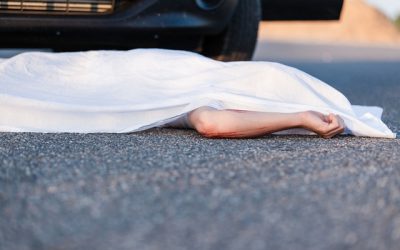CA Vehicle Code 23152(c) dictates that California residents may not get behind the wheel of a car while addicted to controlled substances, but the statute is concerningly broad. Though difficult to prove, CA Vehicle Code 23152(c) charges can see accused drivers face misdemeanor charges, often in addition to elevated DUI charges.
Should you find yourself contending with accusations of a CA Vehicle Code 23152(c) violation, you can turn to our team at Los Angeles DUI Lawyer for legal support and help understanding California Vehicle Codes. We can connect you with a legal representative who can break down the logistics of your charge and challenge any accusations claiming that you’re struggling with addiction.
The efforts of an experienced criminal defense attorney can make it easier for you to keep wrongful DUIs and other charges off your criminal record.
When Can California Police Charge You With a CA Vehicle Code 23152(c) Violation?
California law enforcement must prove that you drove a vehicle while addicted to a substance to charge you with a CA Vehicle Code 23152(c) violation. The state notes that drivers do not have to be actively under the influence of a controlled substance to face accusations of driving while addicted.
The state goes on to note that the term “drug” applies to any controlled substance that has a direct impact on a person’s nervous system and ability to safely operate a motor vehicle. Additionally, the term “drug” accounts for all controlled substances, including legal ones like Vicodin.
How Does California Define Addiction?
How does the state of California prove addiction? Prosecutors who want to push CA Vehicle Code 23152(c) violation charges must indicate that a defendant is physically dependent on a controlled substance. Anyone showing signs of withdrawal after failing to use a substance for a set period of time may face accusations of addiction.
Additionally, the state argues that people suffering from addiction need larger doses of controlled substances to experience the same effects as someone without an addiction. For example, if you need more painkillers to treat serious injuries, the state may suspect you of an opioid addiction.
Finally, the state notes that emotional dependence and a compulsive need to use controlled substances may be signs of addiction.
Exceptions to the Rule
Drivers actively engaged in addiction recovery programs are free to operate motor vehicles on California roadways while showing signs of addiction. However, most attorneys recommend that recovering addicts carry proof of their participation in these programs to avoid accusations of CA Vehicle Code 23152(c) violations.
What Are the Penalties for Violating CA Vehicle Code 23152(c) – Driving While Addicted to Drugs?
If you’re accused of a CA Vehicle Code 23152(c) violation, you risk misdemeanor charges. These charges remain the same during a person’s first, second, and third DUIs. However, if you’re accused of driving while addicted a fourth time, you may face felony charges.
The misdemeanor charges that come with initial CA Vehicle Code 23152(c) violations can include the following:
- Between three and five years of probation
- Fines of at least $390, with penalties increasing the amount owed to the state and other applicable parties
- Up to six months in county jail
- DMV driver’s license suspensions lasting at least six months
- Mandatory participation in California DUI school lasting a minimum of three months
These penalties will grow more severe if you’re accused of driving while addicted and under the influence, or if you get into an accident while addicted or intoxicated. You can discuss the logistics of compound criminal charges with an experienced DUI defense lawyer.
How Can an Anaheim DUI Defense Lawyer Challenge Your Criminal Charges?
The defense an attorney uses to challenge accusations of a CA Vehicle Code 23152(c) violation will depend on your specific circumstances. As mentioned, if you’re participating in a drug rehabilitation program, an experienced attorney can submit proof of your participation to void the charges brought against you.
Additionally, an attorney can challenge the prosecution’s definition of “addicted” in an effort to clear you of CA Vehicle Code 23152(c) charges. Using a drug casually, even an illegal drug, does not constitute addiction, nor does the controlled and monitored use of prescribed medications.
Connecting With an Experienced Criminal Defense Attorney
If you want to discuss what defense you can use to counter accusations of a CA Vehicle Code 23152(c) violation, we encourage you to connect with an experienced criminal defense attorney as soon as you can. Fortunately, Los Angeles DUI Attorney has a broad professional network of attorneys that you can use to secure criminal defense representation.
You can get in touch with one of our representatives today to learn more about the attorneys you can rely on to challenge your CA Vehicle Code 23152(c) charges. We recommend waiting until you have an attorney on your side before speaking to police officers or prosecutors, as the attorneys in our professional network can preserve your rights during these conversations.
Let Our Team Connect You With Experienced Criminal Defense Attorneys
It’s not easy for California police officers to prove that anyone was addicted to drugs while driving, namely because the statute is so broad. However, accusations of CA Vehicle Code 23152(c) violations can compound any DUI charges you may additionally find yourself facing.
You need to challenge these charges if you want to protect yourself from unreasonable judicial punishments. Fortunately, you can turn to an Anaheim DUI lawyer for support throughout this process. Our team can connect you with a legal representative who can:
- Challenge officers’ attempts to compound the charges brought against you
- Question the evidence used to “prove” your addiction
- Emphasize your right to pursue addiction treatment, if applicable
- Advocate for your right to have the charges brought against you reduced or dropped
Let’s work together to challenge the CA Vehicle Code 23152(c) charges brought against you today.







